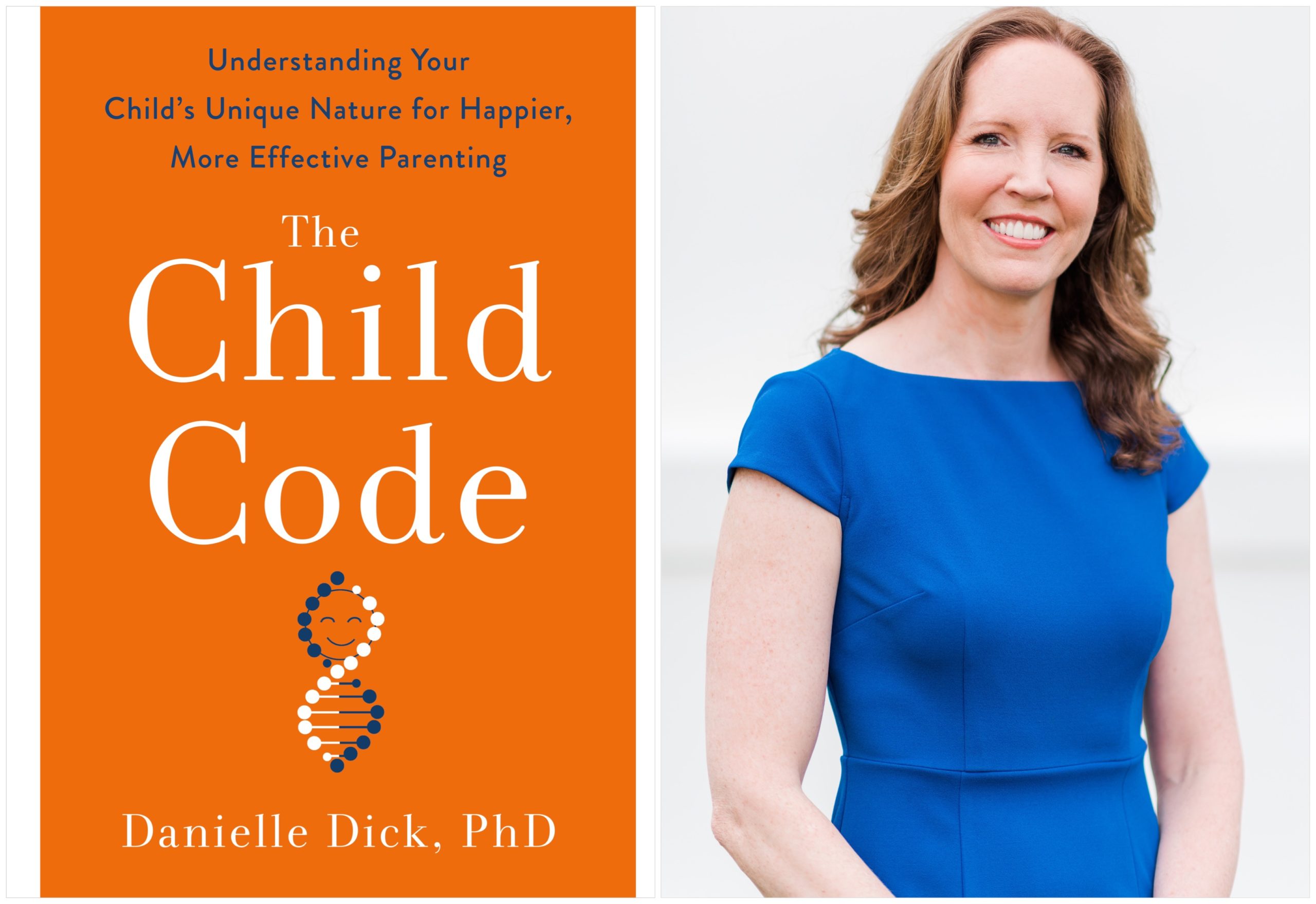 When Danielle Dick became a parent, she realized most of the messages about parenting don’t follow her field of study.
When Danielle Dick became a parent, she realized most of the messages about parenting don’t follow her field of study.
“The messages are one size fits all. Parenting is important, so not getting the information about what science says is a disservice to parents,” says Dick, award-winning commonwealth professor of psychology and human and molecular genetics at Virginia Commonwealth University and author of The Child Code.
Dick has been working in the field of behavior genetics for more than twenty years. “In our field, it’s really well established that genetics affects every aspect of human behavior, and every child is uniquely coded with predispositions that affect everything from fearfulness, to impulsivity, to happiness,” she says.
Parents put pressure on themselves and when they are struggling, they tend to doubt their parenting skills with internal questions such as: What have I done wrong? Why is my kid throwing fits in public?
“Parents have fear and anxiety. Many of the messages they get don’t match the science, so it’s important to get that out there,” Dick says.
While her expertise in behavior genetics has given her a strong foundation, Dick’s first-hand experiences as a mother of two children — a 14-year-old son and a 5 year old step-daughter — have heightened her knowledge of the subject.
“My oldest is in high school and my youngest is starting kindergarten,” she says. “My son was a spirited small child and provided the inspiration for much of the book.”
The Child Code helps debunk the myth that parenting techniques alone can determine a child’s behavior and future. In the book, Dick introduces readers to the 3 Es that underlie each child’s unique predisposition—extraversion (Ex), emotionality (Em), and effortful control (Ef). She shows that the key to raising successful adults isn’t to try harder to mold them, but to adapt your parenting strategies to the way they are wired.
Each chapter unpacks the science behind this unique approach, and provides practical, individualized strategies for parents to support their child’s strengths and to help them navigate their challenges.
The book contains short quizzes that will help parents figure out where their children fall in relation to the 3Es. “I frequently tell people it’s a natural assumption that other people’s brains are working the way ours do, but our kids have their own unique coding, so we need to understand how their brains are wired in order to help them develop into the best version of themselves,” she says.
Our genes can lead to different wiring, making each person unique. These differences in combination with the environment in which children are raised lead to differences in what “call personality or temperament,” she says.
All children will get upset at some point and throw a fit. Parents have to figure out if that type of event is normal development or the child’s temperament. “Is this a behavior that is consistent across situations and time,” she says. “Some kids are more predisposed to get upset in multiple situations.”
Parent’s temperaments (parents can also take the quizzes in the book to see where they fall on the three Es) come into play in a child’s behaviors. too. The temperaments of parents and children can match or mismatch and that can lead to challenges.
“My son and I are very different when it comes to our extraversion levels and it took me a while to realize that,” Dick says. “I am extroverted. I would plan big Saturday morning get-togethers with my friends and their children and before would we leave home, my son would throw a temper tantrum and refuse to go. That was causing a lot of family stress. Eventually, I realized he is much more introverted. What was fun to me was torture to him.”
By understanding and paying attention to where you fall and your child falls on the spectrum, you can begin to understand if the environment you are creating is good for your child’s disposition.
“Children thrive in an environment that meets their disposition,” she says. “We adjusted at home. Instead of going to a large gathering, we would get together with one friend.”
Understanding your temperament and your child’s temperament will help you with parenting, she adds. “Our biggest job as parents is to help nurture our children’s strengths and help them avoid their potential pitfalls. Understanding their unique genetic makeup is critical for that.”







